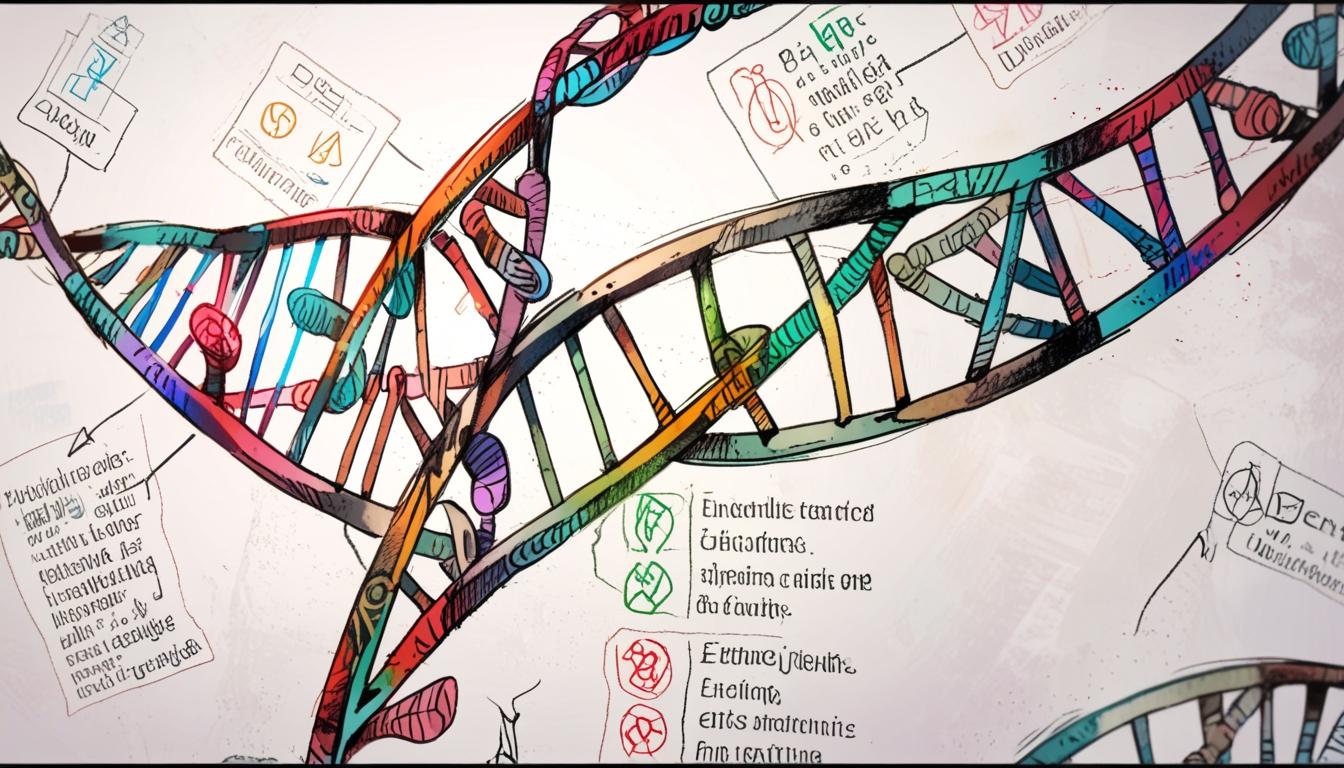In recent years, advancements in gene editing technologies, particularly CRISPR-Cas9, have transformed what was once a speculative concept into a tangible reality. This technological progress is now at the forefront of biotechnology and medicine, posing profound ethical questions about the manipulation of the human genome. These complexities are especially poignant for secular humanists, who grapple with the implications for human dignity, autonomy, and equity.
Gene editing has demonstrated remarkable potential in both healthcare and agriculture. In the medical field, CRISPR has shown promise in clinical trials aimed at treating conditions such as sickle cell anaemia and beta-thalassaemia, potentially offering long-sought relief for millions afflicted by these inherited diseases. Concurrently, agricultural applications of CRISPR aim to engineer crops with enhanced resistance to environmental stresses, potentially combating global hunger while reducing reliance on harmful pesticides.
Despite the excitement surrounding these innovations, ethical considerations must guide their development and implementation. The notion of "playing God" is often invoked in these discussions, but a humanist perspective encourages a more nuanced inquiry: How can society responsibly navigate the ethical implications of gene editing? Concerns largely centre on the potential for enhancement—modifying genes not merely to eradicate diseases but to enhance desirable traits such as intelligence or physical ability. This raises the spectre of “designer babies,” where genetic selection could exacerbate socioeconomic inequalities, a phenomenon bioethicist Julian Savulescu terms “genetic capitalism.”
The potential for a widening "genetic divide" between wealthy nations and lower-income countries also warrants attention. While advanced economies rapidly adopt gene therapies, many regions, particularly in Sub-Saharan Africa, continue to struggle with basic medical infrastructure. For example, the cost of lifetime treatment for sickle cell anaemia can exceed $1.7 million per patient, creating stark disparities in access to the benefits of such advancements. This inequity poses a challenge for advocates of universal human dignity.
As gene editing technologies mature, ownership issues further complicate the ethical landscape. Many biotechnological innovations, notably those surrounding CRISPR, are patented by private firms, leading to contentious debates over whether it is justifiable to claim proprietary rights over life’s fundamental building blocks. This commodification of genetic resources poses risks to shared stewardship of the planet and may disproportionately benefit corporate interests.
While gene editing initially focused on therapeutic measures, it is increasingly seen as a tool for enhancement. The ability to select for traits such as height or memory raises critical ethical questions about social pressures and the risk of reinforcing existing stereotypes. Humanism challenges reductive views of personhood, asserting that individual worth should not be determined by genetics, nor should society's future be engineered towards conformity.
A proactive ethical framework is essential in navigating these complex dilemmas. Many ethical evaluations occur reactively, once technologies have already been developed, which can lead to irreversible consequences. As the field of gene editing evolves, there is a pressing need for anticipatory ethical reflection, dialogue across disciplines, and inclusion of diverse societal voices in these discussions.
The idea of a "global genome commons" presents a potential avenue for equitable access to gene editing technologies, enabling them to be treated as a public good rather than a corporate asset. Advocating for reforms aimed at transparency, accessibility, and public engagement is critical in ensuring that the benefits of biotechnology serve society as a whole.
Moreover, the need for ethical reasoning in scientific education has never been clearer. While technical expertise is vital, incorporating ethics into the training of future scientists is essential. This interdisciplinary focus equips innovators to question not only what is possible but also what is right, ultimately fostering a generation that prioritises a human-centric approach.
Additionally, the the heritable nature of germline editing complicates the notion of consent. Changes made to embryos affect not only the edited individuals but also future generations who cannot voice their agreement or dissent. A cautious approach rooted in humanist principles prompts society to examine the validity of irreversible changes to the human genome.
Historical precedents provide sobering lessons. The eugenics movement, characterised by forced sterilizations and discriminatory practices under the guise of genetic improvement, serves as a stark reminder of the potential dangers of unregulated scientific advancement. Contemporary incidents, such as the controversial gene editing experiment led by Chinese scientist He Jiankui in 2018, reinforce the urgent need for robust global ethical standards and regulatory frameworks.
A secular humanist perspective provides critical guidance as society grapples with these advancements. It centres on human welfare, asserting that any use of biotechnology must prioritise reducing suffering, promoting well-being, and safeguarding individual rights. Effective decision-making regarding gene editing must be transparent and inclusive, drawing in ethicists, scientists, patients, and the public rather than solely corporate interests.
Ultimately, the future of gene editing holds remarkable promise but also significant risks. As society stands at this technological precipice, the fundamental questions are not just about the possibilities of science but about choosing a moral path forward. Incorporating empathy, reason, and respect for human dignity will be paramount as we navigate the complexities of this new frontier, ensuring that the narrative of gene editing prioritises humanity alongside innovation.
Source: Noah Wire Services
